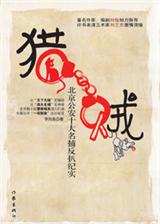Cracking the Success Code of Alibaba: Ten Years of Jack Ma's Journey, Author: Gang Zhang
September 10, 2009 was a special day for two reasons: it marked the tenth anniversary of Alibaba's establishment and also happened to be Jack Ma’s 45th birthday. Through years of in-depth interviews with dozens of senior executives, employees of Alibaba, as well as friends of Jack Ma, the author of this book attempts to provide a phased summary of Alibaba's ten-year journey and comprehensively reveal the secrets behind Ma's success.
Where exactly does Jack Ma's so-called "keen intuition" come from? How does Ma manage and utilize his network of contacts? Why hasn't Alibaba established a "professional manager culture" over the past decade? What were the real reasons behind the "sudden coup" of Alibaba's "Eighteen Arhats"?... This book will analyze many of these external questions one by one.
Most importantly, this book is not a myth but a history — about Jack Ma, about Alibaba, and about this decade.
Jack Ma's Ten Years - Prologue
"This is an exciting and milestone moment; in the last minute, China has given birth to its first company worth more than $20 billion..." In front of the cameras and swarms of media reporters, Wei Zhe, the 37-year-old CEO of Alibaba, began his speech in both Chinese and English. Of course, this former president of B&Q China, renowned for his professionalism, had good reason to be excited. Just counting the 48.25 million shares that Jack Ma gave him, his net worth had already exceeded 1.4 billion Hong Kong dollars. And remember, he had only joined Alibaba for 351 days — less than a year.
Turbulent Entrepreneurship: "Even if we have to kneel to survive, as long as we live another day, we win." (1999-2000)
"There is always a force that makes us shed tears." That day's Southern Weekly came out with its usual characteristics. It was a newspaper that had been in publication for 15 years, full of care and sympathy for disadvantaged groups and grassroots levels, which made it popular enough to sell in more than 2,000 counties in China. In its New Year greeting, it wrote: "This is an ordinary winter day. The leaves in the north have all fallen, while the leaves in the south still cling to the branches. People walk lazily or run hurriedly on the streets, each person harboring their own hopes, each person holding onto their own worries."
There would naturally be worries. At that time, Ma Yun's worry, working at the Ministry of Foreign Trade and Economic Cooperation website, was: should he return to Hangzhou to start a business?
Difficult Development: "We must make one dollar." (2001-2002)
In January 2001, after nearly a year of ups and downs, Alibaba only had $7 million left in its account. Of course, whether there was a lot or a little money didn't matter much, the most critical issue was that Ma Yun and his Alibaba hadn't found a way to make money.
The once generous investors revealed their true colors of greed and profit-seeking after the NASDAQ internet stock bubble burst in April 2000.
Ma's wife, Zhang Ying, who was then the General Manager of Alibaba's China Division, recalled that by the end of 2000, the shareholders' expressions had become very unpleasant, threatening that "if we don't start making a profit, we'll shut down the site."
Expanding the Map: "Let's pray for her together." (2003-2004)
On Taobao, the most creative idea was that every Taobao employee would register a "Jin Yong Wuxia novel ID." Sun Tongyu, who was often online, called himself "Caishen" (some people called him "Caitu"), just for good luck, and everyone on Taobao could contact him anytime. Ma Yun's ID was the famous "Feng Qingyang," Wang Shuai joked, "He couldn't play this role in CCTV's 'Smiling, Proud Wanderer,' so he took this name online to enjoy it." Normally, every employee of Taobao called each other by nicknames taken from characters in Jin Yong's novels. Few people knew the real names of many employees, and some employees commented, "It feels a bit like a virtual world."
This article comes from http://www.iphone-ebook.cn, reprint source: http://www.iphone-ebook.cn/newbook/News778.html




